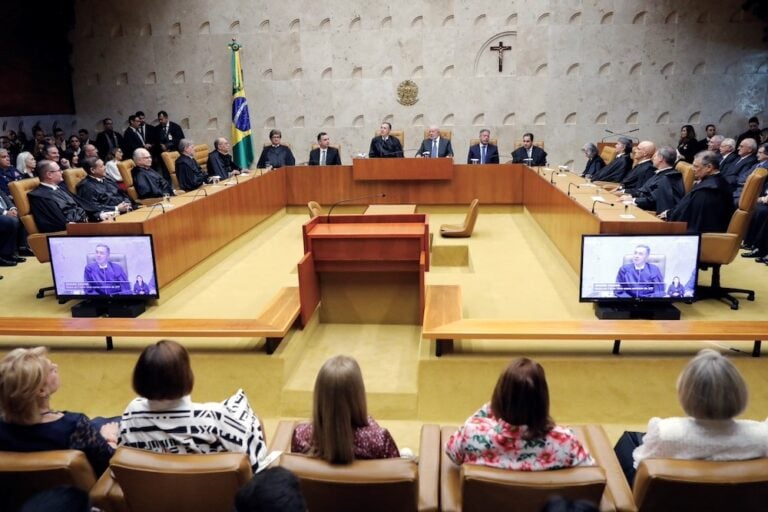In February, the newspaper reported that furniture from the São Bernardo do Campo municipality's schools was being donated to recycling centers, even though it was in good condition.
(ABRAJI/IFEX) – A court has banned “Diário do Grande ABC” newspaper, published in Santo André, from reporting on a case involving discarded school desks in São Bernardo do Campo.
In February 2010, the newspaper reported that furniture from the municipality’s schools was being donated to recycling centers. The desks were reportedly in good condition, but had been discarded by the local town hall, which is under the management of Mayor Luiz Marinho, former Partido dos Trabalhadores minister of labour under President Lula.
About a third of the “Diário do Grande ABC” article was dedicated to the town hall’s version, which denied that the desks were in good condition. Despite the fact that the text included the government’s position on the subject, Marinho asked for the right to reply. The mayor also filed a civil suit against the paper for “moral damages” and asked the court to prevent the paper from publishing any further reports that associated his name with the subject of the school equipment.
Judge Jairo Oliveira, of the Santo André First Civil Jurisdiction, agreed to the mayor’s requests. “Diário do Grande ABC” faces a fine of US$920 per day, if it continues to report on the case.
The newspaper appealed the decision, with the support of the Paulista Newspaper Association (APJ) and the National Newspaper Association.
Renato Delicato Zaiden, president of APJ, criticised the court’s decision. “This judicial censorship is regrettable from the point of view of freedom of press and cause for concern from a democratic point of view that information has to be freely accessible. They can’t forbid an organ of the press from having a position on matters of public interest.”
Zaiden also condemned the mayor’s attitude. “It’s regrettable that a politician has tried to use censorship to stifle objections, even more so in a moment when the country is solidifying its institutions. The publication or not of news shouldn’t be a matter for the courts, but a matter of public opinion. Citizens cannot pass judgement without access to information. Government officials can use their right to reply, but censorship? Never.”
The National Journalists Association (ANJ) also criticised the court decision. “The ANJ considers that judicial instruments like the establishment of prior censorship violates the spirit and word of freedom of expression as guaranteed by the Federal Constitution.” The executive-director of ANJ, Ricardo Pedreira, considered the decision to be “regrettable, because censorship is harmful to society as a whole, not only to the means of communication”.
The case drew criticism from the Partido dos Trabalhadores, the ruling party. The São Paulo state senator, Eduardo Suplicy, said that the decision to forbid the newspaper from reporting on the case is a mistake.
In response, Marinho has said that there is no censorship in the decision.
BACKGROUND:
The incident comes on the heels of another censorship case, involving “O Estado de S. Paulo” newspaper, which was prohibited, for more than nine months, from reporting on a Federal Police investigation into the affairs of businessman Fernando Sarney.


